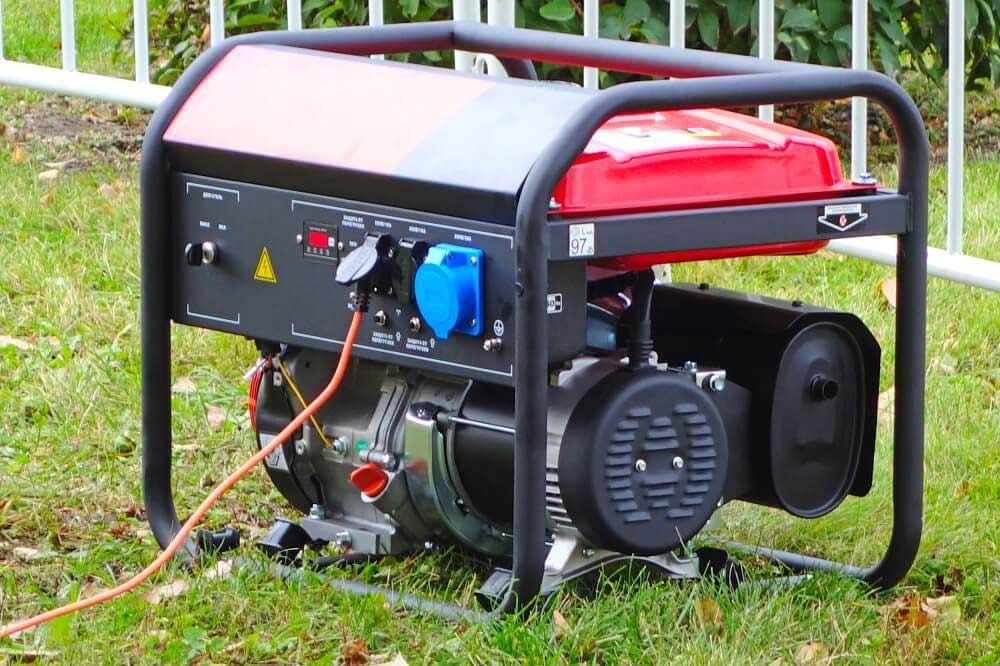Key safety messages for using portable power generators

Portable power generators can be a godsend during power outages caused by storms, cyclones or floods.
The convenience of being able to power electrical appliances, like fridges and freezers, is invaluable when access to the main grid is unavailable.
However, there are several key safety messages which must be followed to ensure generators are used safely.
Only position the generator outside with a heavy-duty extension cord rated for outdoor use, and never inside a property.
A petrol or diesel-powered generator emits carbon monoxide which can have deadly consequences if breathed in an enclosed space.
Generators should be kept well away from open windows, including those of neighbours, so dangerous exhaust fumes do not enter any homes.
It is important the generator is always kept dry and not used in rainy conditions. This is particularly important given wet weather can continue after severe weather events.
Appliances can be plugged directly into the generator but read the manufacturer's instructions beforehand.
Never plug a generator directly into a home's wiring. Power from a generator connected to a home's wiring will "back feed" into powerlines, potentially causing a safety hazard for your household, neighbours and power company workers.
It can also cause damage to your generator when power is restored.
Generator do's
- Keep the generator outside. Never use it indoors.
- Install a battery-operated carbon monoxide alarm.
- Keep the generator dry. Do not use in rain or wet conditions. Protect from moisture by operating on a dry surface under an open canopy-like structure.
- Dry wet hands before touching the generator.
- Plug appliances directly into the generator. Or use a heavy duty outdoor-rated extension cord that is rated in watts or amps at least equal to the sum of the connected appliance loads. Check that the entire cord is free of cuts or tears and that the plug has all three prongs, especially an earthing pin.
Generator don'ts
- Never try to power the house wiring by plugging the generator into a wall outlet, a practice known as backfeeding. This is extremely dangerous and is an electrocution risk to utility workers and neighbours served by the same utility transformer. It also bypasses some of the built-in household circuit protection devices.
- If you must connect the generator to the house wiring to power appliances, get a licensed electrical contractor to do it in accordance with AS/NZS 3000 Electrical installations (known as the Australian/New Zealand Wiring Rules) and Energex or Ergon Energy requirements.
- Avoid creating a fire hazard. Store fuel for your generator in properly labelled non-glass safety containers. Store out of the home and away from fuel-burning appliances such as natural gas water heater in the garage.
- Before refuelling the generator, turn it off and let it cool down. Fuel spilt on hot engine parts could ignite.
Sources: Queensland Workplace Health and Safety and Energex.
The information in this article has been prepared for general information purposes only and is not intended as legal advice or specific advice to any particular person. Any advice contained in the document is general advice, not intended as legal advice or professional advice and does not take into account any person’s particular circumstances. Before acting on anything based on this advice you should consider its appropriateness to you, having regard to your objectives and needs.
Related topics
Things to note
The information in this article has been prepared for general information purposes only and is not intended as legal advice or specific advice to any particular person. Any advice contained in the document is general advice, not intended as legal advice or professional advice and does not take into account any person’s particular circumstances. Before acting on anything based on this advice you should consider its appropriateness to you, having regard to your objectives and needs.
Insurance Products (excluding Travel Insurance) are issued by RACQ Insurance Limited ABN 50 009 704 152 (RACQI) and arranged by RACQ Distribution Services Pty Ltd (RDS) ABN 35 116 361 650, AFSL 567130 and RDS' authorised representatives (including RACQ Operations Pty Ltd ABN 80 009 663 414, AR No. 234978 (RACQO)). Conditions, limits and exclusions apply.
Any advice provided by RDS and RACQO is general advice only and does not take into account your personal objectives, financial situation or needs and you will need to consider whether the advice is appropriate for you. Read the Product Disclosure Statement (PDS) before making a purchase decision on the product. You can also access our Target Market Determinations on this website.
RDS receives a commission from RACQI for the policies it arranges. RACQO receives fees paid for services it provides to RDS. Further details about remuneration are available on request prior to purchasing.
Banking and loan products issued by Members Banking Group Limited ABN 83 087 651 054 AFSL/Australian credit licence 241195 trading as RACQ Bank. Terms, conditions, fees, charges and lending policies apply. This is general advice only and may not be right for you. This information does not take your personal objectives, circumstances or needs into account. Read the disclosure documents for your selected product or service, including the Financial Services Guide and the Terms and Conditions, and consider if appropriate for you before deciding.
Except for RACQ Bank, any RACQ entity referred to on this page is not an authorised deposit-taking institution for the purposes of the Banking Act 1959 (Cth). That entity’s obligations do not represent deposits or other liabilities of RACQ Bank. RACQ Bank does not guarantee or otherwise provide assurance in respect of the obligations of that entity, unless noted otherwise.
RACQ Bank subscribes to the Customer Owned Banking Code of Practice which establishes higher standards than the law requires. The Code reflects modern consumer expectations and developments in approaches to issues such as consumer vulnerability, guarantors, and supporting customers through financial hardship. Please read our Customer Owned Banking Code of Practice page for more information.
RACQ Operations Pty Ltd (ABN 80 009 663 414 AR 000234978) and Members Travel Group Pty Ltd (ABN 45 144 538 803 AR 000432492) are acting as an Authorised Representative of the issuer of the insurance, Tokio Marine & Nichido Fire Insurance Co., Ltd. (ABN 80 000 438 291 AFSL 246 548). Any advice set out above is general in nature only, and does not take into account your objectives, financial situation or needs. Before purchasing any travel products, please consider the RACQ Travel Insurance Product Disclosure Statement (PDS) and the Target Market Determinations (TMDs) that apply to these products. Whilst the PDS outlines the Terms and Conditions of these products, the TMDs outline the intended class of customers that comprise the target market for these travel products. This will allow you to consider which products best suit your objectives, financial situation and needs and consider the products appropriateness to your personal circumstances. TMDs also outline matters involving the distribution and the review of these products. The PDS, Supplementary PDS and TMDs for each travel product can be found here.

